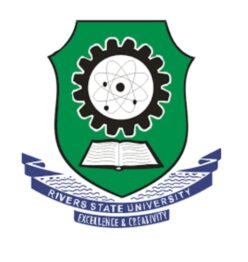NWOKEARU Roseline Amaka ADIELE Kenneth Chima
Department of Marketing, Faculty of Administration and Management
Rivers State University Nkpolu-Oroworukwo, Port Harcourt.
Abstract
The purpose of this study was to investigate the link between digital supply chain (DSC) adoption and operational efficiency of downstream oil and gas firms in Rivers State. This hypothesis testing study adopted a correlational research design, and obtained quantitative data from respondents in a non-contrived environment. The population of the study consisted 29 registered and functional downstream oil and gas firms operating in Rivers State. The researchers adopted a census because of the small size of the population. 5 managers were drawn from each of the 29 downstream oil and gas firms. In all, 145 managers constituted the respondents for the study. 145 copies of structured questionnaire were administered to the respondents while 126 copies were retrieved, cleaned and qualified for use. The Pearson Product Moment Correlation statistical was used to test the hypotheses formulated for the study. The results of the analysis revealed that DSC adoption significantly relates to operational efficiency of downstream oil and gas firms in Rivers State. Thus, the study concluded that DSC adoption significantly and positively correlates to operational efficiency of downstream oil and gas firms and recommends that downstream oil and gas firms should monitor and improve digitalization of their supply chain activities in other to enhance their operational efficiency.
Keywords: cost reduction, decentralized management, digital supply chain adoption, operational efficiency, resource utilization.
